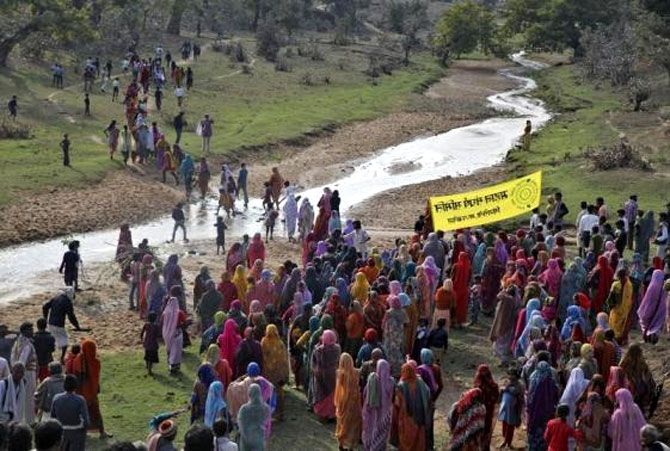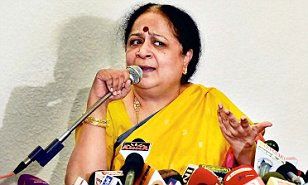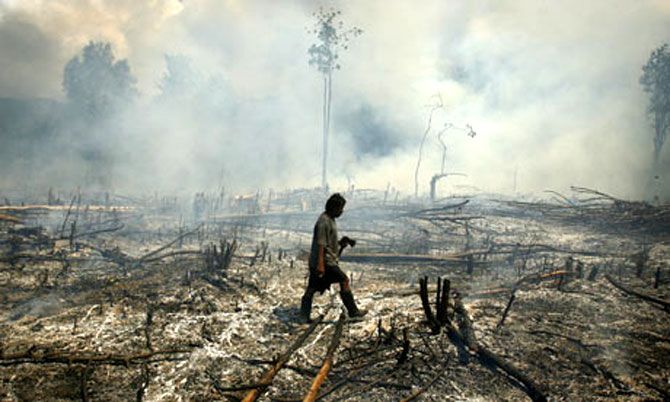Former Union environment minister Jayanthi Natarajan tells Nitin Sethi that she had an unpopular job but she never did anything wrong. Excerpts:

Were you approached by Sonia Gandhi, Rahul Gandhi or anyone else in your party or allies to favour specific projects?
I was never approached by the two to favour anybody. I was approached by several top leaders, including Cabinet colleagues, in favour of certain projects. Not necessarily for wrong reasons, perhaps it was in their constituency or they wanted to promote development. So, in several cases, yes, Cabinet colleagues, party colleagues but never the Gandhi family.
In the case of Mahan coal block, you put on record that the decision was against your wisdom and expert advice. Do you think the political and government’s demand in this case override environmental concerns?
Because in that particular clearance, it was one of the finest forest areas, and I was not convinced that it should be given, but it was subsequently considered and discussed in detail in a group of ministers headed by the then finance minister. My decision was overruled by them and the clearance was given.
 There have been cases of large policy turn-around where you partially or completely objected – in the case of GMOs (genetically modified organisms) or setting of the National Investment Board. Do you think these pressures overlooked the concerns of environment?
There have been cases of large policy turn-around where you partially or completely objected – in the case of GMOs (genetically modified organisms) or setting of the National Investment Board. Do you think these pressures overlooked the concerns of environment?
The National Investment Board was set at rest because the Cabinet Committee on Infrastructure was formed. My personal view regarding GMOs then and now is, as long as robust structures are not put in place to ensure public safety, we should take a very strict view in stopping it. That doesn’t stop research at all. But to say it’s only field trials is a myth.
Data show that largely, the projects were cleared during UPA-II and only in a few cases there were rejections...
Most of the projects were cleared. In most cases in my or others’ tenures, the majority view in the collective Union Cabinet was that development should take precedence over our environmental concerns; therefore, sometimes we were overruled.
Did you find it odd that your job was to appraise projects for their environmental integrity, but decisions were taken for reasons not necessarily in favour of environment?
It was a virtually impossible task. It was an unpopular job, and in retrospect, it was a Herculean task that nearly destroyed me. It meant taking on powerful vested interests to protect the environment, which was not newsworthy enough or lobbies were not powerful enough to present a counterview to the public at large.
In one particular case – Nirma cement – National Green Tribunal has eventually cleared the project. Do you find your role in this particular case was amiss that you followed the advice of political leadership and did something rejected by courts?
I followed the rules to the letter. As a matter of fact, the Supreme Court had a different take on it than the NGT, and I filed affidavits in the Supreme Court; it was under SC’s direction that my rejection was upheld. I am not aware of the grounds under which the NGT has cleared it now. I followed the law, though I got inputs from Rahul Gandhi’s office based on local inputs.
On Narendra Modi’s comments on a purported ‘Jayanthi tax’, how do you reconcile the fact that there was political influence from Sonia, Rahul and others on you and yet you didn’t do anything illegal?
I can state that I did nothing illegal or wrong or anything that did not serve the nation’s interest. Even Modi said, ‘I hear that there is a Jayanthi tax’. It is easy to make allegations. He can check and find out now if he was right. He is (now) in a position to do that. Finally, I am actually asking my own party why I have been punished. When an opposition leader (Modi) makes allegations against me, I take it as just as that. I am questioning my own party.

Do you think that your party leaders were in favour of environmental concerns and against projects, but just before elections they turned around and you became the scapegoat?
I don’t know, I am asking them the question. If the party and the leadership was so committed towards environment, why was I removed? This is based on Rahul Gandhi’s speech — why was I removed for being a bottleneck for clearances?
Will you join the Bharatiya Janata Party (BJP) in near or long-term future?
No.
Will you be in a role where you are outside the Congress, but supported by the BJP in your political career?
At this point of time, I don’t see any role for myself in electoral politics. I don’t see myself as an independent backed by the BJP.












 © 2025
© 2025